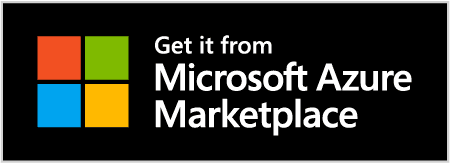Healthcare
Yale New Haven Health data breach exposed the personal information of 5.5M patie...
Connecticut's largest healthcare system, Yale New Haven Health System (YNHHS), has reported a significant data breach affecting approximately 5.5 million patients. The cyberattack, which occurred in March 2025, allowed unauthorized access to sensitive patient information including personal identifiers and some healthcare-related data. While the organization has implemented mitigation measures and begun notifying affected individuals, the incident has already resulted in multiple class-action lawsuits. This breach represents one of the largest healthcare data compromises reported in 2025 and highlights the persistent cybersecurity challenges facing the healthcare sector.
## Timeline and Discovery of the Breach
The security incident began on March 8, 2025, when YNHHS detected unusual activity affecting its information technology systems[1][4][14]. The organization immediately took steps to contain the incident, engaging external cybersecurity experts, including Mandiant, to assist with system restoration and forensic investigation. Federal law enforcement authorities were promptly notified about the breach.
On March 11, 2025, YNHHS made its first public statement about the cybersecurity incident, acknowledging system disruptions but emphasizing that patient care operations remained unaffected[1]. Approximately one month later, on April 11, 2025, the healthcare system confirmed through its investigation that the incident was indeed a data breach, revealing that an unauthorized third party had gained network access and obtained copies of certain data.
The data breach was formally reported to the U.S. Department of Health and Human Services Office for Civil Rights on April 11, 2025, with documentation confirming that 5,556,702 individuals were affected. Beginning April 14, 2025, YNHHS started mailing notification letters to affected patients whose information was involved in the breach.
## Scope of the Compromised Data
The investigation revealed that the unauthorized third party accessed YNHHS's network and obtained copies of sensitive patient information[4]. The compromised data varied by individual but potentially included several categories of personally identifiable information and limited healthcare-related data.
The types of data exposed in the breach include:
- Full names
- Dates of birth
- Home addresses
- Telephone numbers
- Email addresses
- Race/ethnicity information
- Social Security numbers
- Patient type classifications
- Medical record numbers
ImportSignificantly, YNHHS has clarified that specific categories of sensitive information were not compromised in the breach. The organization's statement emphasized that electronic medical records and treatment information were not accessed during the incident. Additionally, financial account details and payment information were also confirmed not to be part of the exposed data.
## YNHHS Response and Mitigation Efforts
Yale New Haven Health System implemented a multi-faceted response to contain the breach and mitigate potential harm to affected individuals. Upon detecting the unauthorized activity, the organization immediately engaged cybersecurity firm Mandiant to assist with system restoration and conduct a thorough forensic investigation. The healthcare system also reported the incident to law enforcement authorities, who initiated an ongoing investigation.
In accordance with federal regulations, YNHHS began sending notification letters to affected patients on April 14, 2025[1][4]. In a statement on its website, the organization noted: "YNHHS considers the health, safety, and privacy of patients our top priority. We are continuously updating and enhancing our systems to protect the data we maintain and to help prevent events such as this from occurring in the future".
For patients whose Social Security numbers were exposed in the breach, YNHHS is offering complimentary credit monitoring and identity protection services. When contacted by media outlets, YNHHS Director of Public Relations Dana Marnane stated that the health system takes its "responsibility to safeguard patient information incredibly seriously"[10]. When pressed by TechCrunch about whether the incident was ransomware-related, Marnane did not dispute this characterization, noting that "the sophistication of the attack leads us to believe that it was executed by an individual or group who has a pattern of these types of incidents"[query].
## Legal and Regulatory Implications
The data breach has promptly triggered legal action, with at least eight federal lawsuits filed against YNHHS as of late April 2025[10]. These class-action complaints allege that the healthcare system failed to adequately protect patients' personally identifiable and health information, particularly sensitive data like Social Security numbers and medical record numbers. The lawsuits further claim that YNHHS delayed clearly notifying affected patients, potentially hindering their ability to take timely protective measures[10].
Plaintiffs are seeking various remedies, including financial damages, free lifetime identity protection services, and comprehensive improvements to the health system's cybersecurity practices[10]. One complaint specifically alleges that YNHHS failed to implement basic security protections such as file encryption, proper employee training on data security, and multi-factor authentication[10]. Another lawsuit claims that patients now face "a lifetime risk of identity theft due to the nature of the information lost, which they cannot change and which cannot be made private again"[10].
Some plaintiffs have reported experiencing an increase in spam calls and phishing attempts since the incident, suggesting that their information may already be circulating in illicit channels[10]. Law firm Levi & Korsinsky, investigating the breach, noted that it exemplifies insufficient data protections in a sector handling highly sensitive personal information[10].
## Context of Healthcare Data Breaches
The YNHHS breach occurs amid a concerning pattern of data security incidents within the healthcare sector. Just days before this breach was publicly confirmed, Blue Shield of California disclosed that it had inadvertently exposed protected health information of 4.7 million members to Google's analytics and advertisement platforms between April 2021 and January 2024[8][11]. Unlike the apparent malicious attack on YNHHS, the Blue Shield incident resulted from a misconfiguration of Google Analytics that allowed sensitive data to be shared with Google Ads[8].
Earlier in 2025, UK healthcare provider HCRG Care Group confirmed it was investigating a cybersecurity incident after the Medusa ransomware group claimed to have stolen more than two terabytes of sensitive data from the company[3]. In that case, the ransomware group threatened to publish the allegedly stolen data unless HCRG paid a $2 million ransom demand[3].
The healthcare sector remains particularly vulnerable to cyberattacks due to the high value of medical data on illicit markets and the critical nature of healthcare operations that creates pressure to resolve disruptions quickly. According to cybersecurity experts, about 83% of organizations admit to paying hackers following a ransomware attack, with more than half paying at least $100,000[7]. However, paying ransoms carries significant risks-80% of ransomware victims who paid were subsequently targeted again, often with higher ransom demands[7].
As of the reporting date, no major ransomware group has publicly claimed responsibility for the YNHHS attack[1]. However, the spokesperson's comments about the "sophistication of the attack" and reference to attackers with "a pattern of these types of incidents" suggest potential ransomware involvement, though the healthcare provider has declined to confirm whether it received any ransom demands[query].
## Conclusion
The Yale New Haven Health System data breach represents one of the most significant healthcare security incidents of 2025, affecting approximately 5.5 million patients. While the organization acted quickly to contain the breach and has begun offering protective services to those with exposed Social Security numbers, the incident has already generated multiple lawsuits and raised serious questions about data security practices within the healthcare sector.
For affected individuals, the breach creates potential long-term risks of identity theft and fraud, particularly concerning given the sensitive nature of the exposed information. Patients whose data was compromised should carefully monitor their credit reports and financial accounts for suspicious activity, consider accepting the offered credit monitoring services, and remain vigilant against potential phishing attempts that might leverage the stolen information.
The incident underscores the persistent and evolving cybersecurity challenges facing healthcare organizations, which must balance operational demands with the need to protect vast amounts of sensitive patient information. As investigations continue and legal proceedings advance, this breach will likely influence healthcare security practices and potentially shape regulatory approaches to data protection in the healthcare sector.
Citations:
[1] https://www.bleepingcomputer.com/news/security/yale-new-haven-health-data-breach-affects-55-million-patients/
[2] https://www.govinfosecurity.com/yale-new-haven-health-notifying-55-million-march-hack-a-28081
[3] https://techcrunch.com/2025/02/20/uk-healthcare-giant-hcrg-confirms-hack-after-ransomware-gang-claims-theft-of-sensitive-data/
[4] https://www.pymnts.com/cybersecurity/2025/yale-new-haven-health-system-reports-data-breach-affecting-5-5-million-patients/
[5] https://www.techtarget.com/healthtechsecurity/news/366623025/Yale-New-Haven-Health-notifies-nearly-56M-people-of-breach
[6] https://www.hartfordbusiness.com/article/federal-judge-oks-1m-settlement-in-ynhh-retirement-fee-lawsuit
[7] https://techcrunch.com/2023/10/31/ransomware-victims-paying-hackers-ransom/
[8] https://www.bleepingcomputer.com/news/security/blue-shield-of-california-leaked-health-data-of-47-million-members-to-google/
[9] https://ocrportal.hhs.gov/ocr/breach/breach_report.jsf
[10] https://yaledailynews.com/blog/2025/04/25/patients-sue-ynhh-after-cyberattack-compromises-health-data/
[11] https://techcrunch.com/2025/04/25/data-breach-at-connecticut-yale-new-haven-health-affects-over-5-million/
[12] https://yaledailynews.com/blog/2025/02/12/ynhh-systematically-underpaid-employees-lawsuit-alleges/
[13] https://www.hhs.gov/sites/default/files/new-haven-resolution-agreement-corrective-action-plan.pdf
[14] https://www.ynhhs.org/legal-notices
[15] https://aspe.hhs.gov/sites/default/files/private/pdf/77196/rpt_Disclosure.pdf
[16] https://www.ynhhs.org/policies
[17] https://www.techmonitor.ai/technology/cybersecurity/ynhhs-cyberattack-data-5-5-million-patients
[18] https://patch.com/connecticut/across-ct/details-emerge-number-patients-impacted-yale-data-breach
[19] https://www.digitalhealthnews.com/yale-new-haven-health-breach-exposes-data-of-5-5-mn-patients
[20] https://www.ynhhs.org/policies
[21] https://yaledailynews.com/blog/2023/10/13/following-cyberattack-yale-new-haven-health-asks-for-state-aid-lowered-price-to-aquire-connecticut-hospitals/
[22] https://www.bankinfosecurity.com/yale-new-haven-health-notifying-55-million-march-hack-a-28081
[23] https://ssojet.com/blog/yale-new-haven-health-data-breach-impacts-over-55-million-patients/
[24] https://www.ynhhs.org/news/yale-new-haven-health-notifies-patients-of-data-security-incident
[25] https://yalehealth.yale.edu/nondiscrimination-notice
[26] https://ctmirror.org/2024/01/04/ct-welltok-data-breach-ynhh/
[27] https://www.securityweek.com/5-5-million-patients-affected-by-data-breach-at-yale-new-haven-health/
[28] https://lifehacker.com/tech/yale-new-haven-health-data-breach
[29] https://www.ctpost.com/business/article/yale-new-haven-health-data-breach-20292710.php
[30] https://ocrportal.hhs.gov/ocr/breach/breach_report.jsf
[31] https://www.hipaajournal.com/yale-new-haven-health-system-data-breach/
[32] https://www.malwarebytes.com/blog/news/2025/04/4-7-million-customers-data-accidentally-leaked-to-google-by-blue-shield-of-california
[33] https://www.ynhhs.org
[34] https://news.bloomberglaw.com/daily-labor-report/yale-new-haven-health-system-hit-with-wages-hours-class-action?context=search&index=7
[35] https://www.beckershospitalreview.com/cybersecurity/yale-new-haven-seeks-price-reduction-in-hospital-acquisition-amidst-cyberattack-fallout.html
[36] https://www.techtarget.com/healthtechsecurity/news/366623133/Blue-Shield-of-California-Data-of-millions-shared-with-Google
[37] https://www.ynhh.org/patients-visitors/patient-rights-responsibilities
[38] https://yaledailynews.com/blog/2025/04/25/patients-sue-ynhh-after-cyberattack-compromises-health-data/
[39] https://techcrunch.com/2025/04/25/data-breach-at-connecticut-yale-new-haven-health-affects-over-5-million/
[40] https://www.securityweek.com/blue-shield-of-california-data-breach-impacts-4-7-million-people/
[41] https://aspe.hhs.gov/reports/records-computers-rights-citizens
[42] https://www.nbcconnecticut.com/news/local/yale-new-haven-health-investigating-cybersecurity-incident-affecting-it-services/3517226/
[43] https://www.ctinsider.com/business/article/yale-new-haven-health-data-breach-20292710.php
[44] https://www.hartfordbusiness.com/article/yale-new-haven-health-faces-lawsuits-over-data-breach-health-system-discloses-more-details
[45] https://www.bleepingcomputer.com/news/security/yale-new-haven-health-data-breach-affects-55-million-patients/
[46] https://medicalbuyer.co.in/ynhhs-pmh-locked-in-legal-battle-over-435m-hospital-deal/
[47] https://www.lmhospital.org/news/yale-new-haven-health-notifies-patients-of-data-security-incident
[48] https://www.tradingview.com/news/reuters.com,2025-04-17:newsml_GNXc7h6Z4:0-lynch-carpenter-investigates-claims-in-yale-new-haven-health-systems-data-breach/
[49] https://techcrunch.com/2025/02/20/uk-healthcare-giant-hcrg-confirms-hack-after-ransomware-gang-claims-theft-of-sensitive-data/
[50] https://www.hhs.gov/sites/default/files/fy-2018-foia-log.xlsx
[51] https://www.pymnts.com/cybersecurity/2025/yale-new-haven-health-system-reports-data-breach-affecting-5-5-million-patients/
---
Answer from Perplexity: pplx.ai/share






